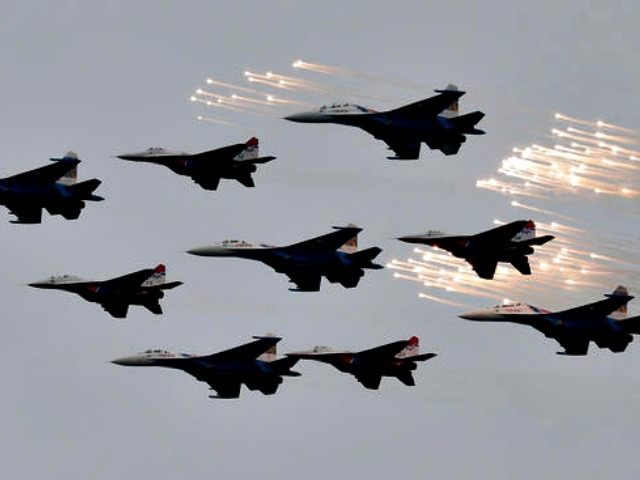WASHINGTON, D.C. — Defense Secretary Ashton Carter told reporters today that the Pentagon was still willing to hold talks with Russian President Vladimir Putin on Syria, even after Russia reportedly ordered the U.S. out of the Middle Eastern country.
During the Pentagon press briefing, Carter did dismiss Russia’s position on Syria as contradictory, saying “the Russian approach is doomed to fail.”
There is no way to fight the Islamic State (ISIS/ISIL) and other terrorist groups while lending support to Syrian dictator Bashar al-Assad, as Moscow has proposed, explained Carter. The U.S. blames Assad for instability in the Middle East.
“Our position is clear that a lasting defeat of ISIL and extremism in Syria can only be achieved in parallel with a political transition in Syria,” said Carter. “And we will continue to insist on the importance of simultaneously pursuing these two objectives. I would hope that Russia will join us in pursuing these objectives, which they claim to share, in parallel, rather then the sequence that cannot succeed.”
“There is a logical contradiction in the Russian position and now its actions in Syria. Russia states an intent to fight ISIL on the one hand and to support Bashar al-Assad and his regime on the other,” he added. “Fighting ISIL without pursuing a parallel political transition only risks escalating the civil war in Syria and with it the very extremism and instability that Moscow claims to be concerned about and aspires to fighting.”
Nevertheless, Carter said there was still a chance that Russia might change course and cooperate with the United States. President Obama has expressed support for cooperation between Russia, Iran, and the United States on resolving the Syrian conflict. Russia has begun launching airstrikes in Syria.
A three-star Russian general, who is par to the newly formed intelligence sharing agreement between Russia, Iraq, Iran, and the Assad regime, arrived in Baghdad on Wednesday and told U.S. officials that Russia would begin airstrikes and that America “should refrain from conducting strikes and move any personnel out,” reports The Daily Beast.
Despite those comments, the secretary of defense told reporters that if Russia “came in the position of trying to achieve those two objectives — a political transition and fighting extremism in parallel, I think our interests would have some overlap and whenever you have overlapping interests, you have the possibility of cooperating.”
“So, I hope we get to that point, but that would require a change from this current position,” he added.
Carter himself acknowledged that Moscow bombed areas where ISIS does not maintain a presence, potentially hitting U.S.-backed Syrian rebels.
The defense secretary pointed out that Russia “may well have” launched airstrikes “in places in fact where ISIL is not present, others are present, and this is one of the reasons why the result of this kind of action will inevitably will simply be to inflame the civil war in Syria and why, therefore, it’s ill advised to take this kind of action in support of Assad only, without pursuing a political transition there. And that’s why we’re trying to get them to the same position.”
“I want to be careful about confirming information, but it does appear that they [the Russians] were in areas where there probably were not ISIL forces and that is precisely one of the problems with this whole approach,” added Carter.
The Pentagon chief suggested that the U.S. Department of Defense (DOD) was not surprised by the Russian airstrikes in Syria, saying that Moscow had made their intention to do so known in advance.
He also indicated that the U.S. is still willing to negotiate with Russia on the situation in Syria. the U.S. Pentagon chief said:
During my phone call with [Russian defense] minister [Sergei] Shoygu, I also told him that I was prepared to send a DOD team to meet with Russian defense counterparts at a location to be agreed upon to ensure that we avoid any inadvertent incidents over Syrian air space and yesterday I directed my team to proceed with exactly such a meeting as soon as possible, that is in the next few days.
The proposed meeting’s goals are “to facilitate the flow of information between coalition forces and Russian elements that will help us maintain the safety of our personnel in the region, which is critical; to ensure that any additional Russian actions do not interfere with our coalition’s efforts to degrade and defeat ISIL and; to clarify that broader U.S. security commitments in the region remain unchanged,” continued Carter.

COMMENTS
Please let us know if you're having issues with commenting.